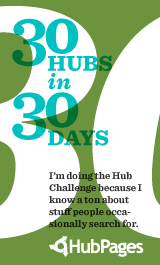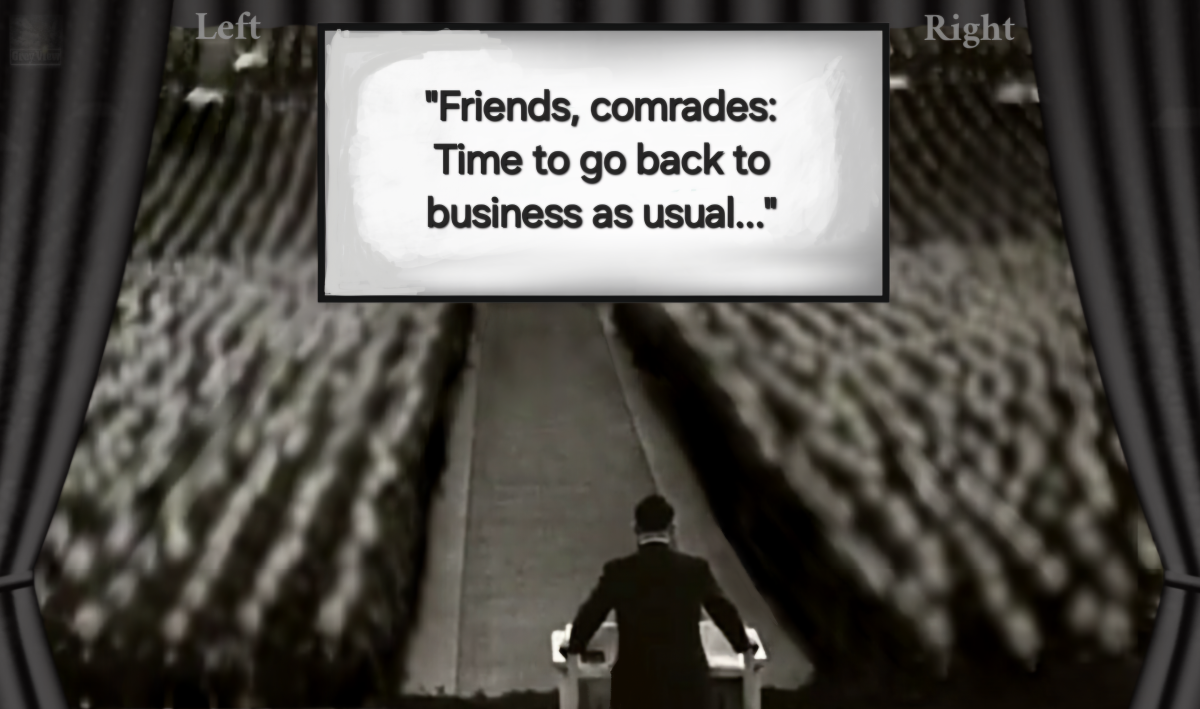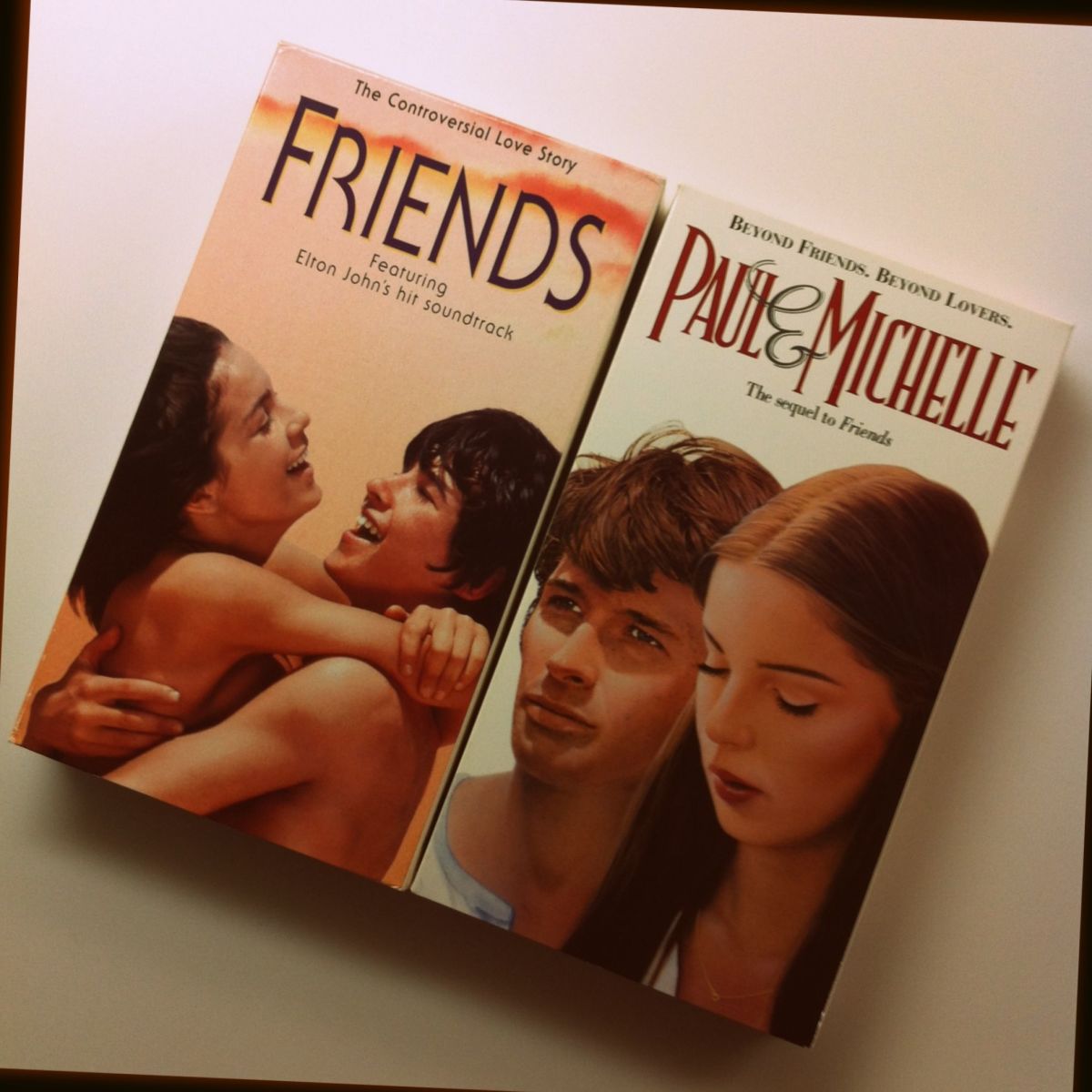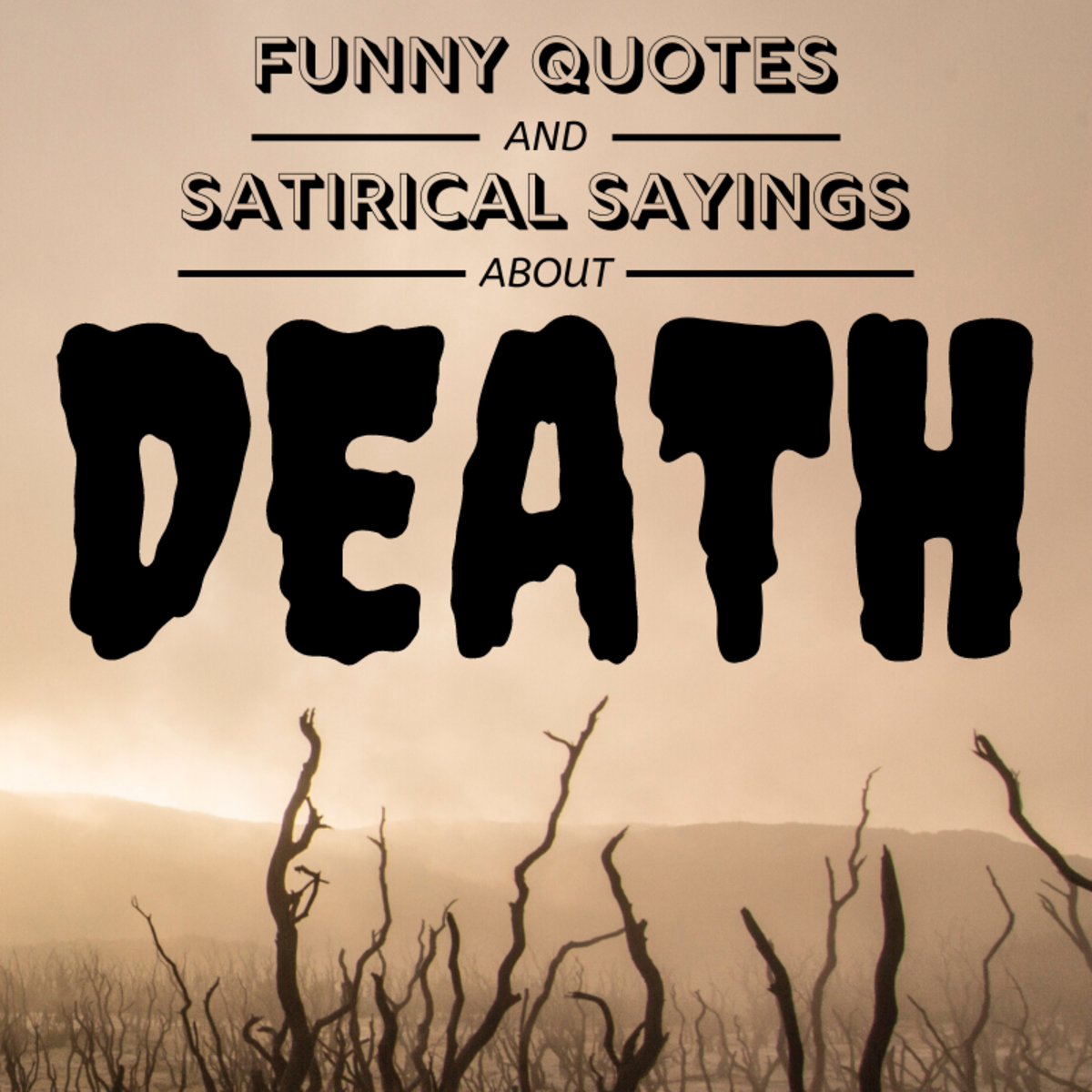Conquer your fear of success
#4 of 30 for my HubChallenge

Does Fear of Success ever stop you writing?
Most of the people who have known me in real life, especially in years past before I'd finished my first novel, grew very tired of hearing about my being stuck in Writers' Block. I'd be miserable, get sick, not manage to accomplish anything else either.
I have fibromyalgia. It's a chronic pain and fatigue disease of my immune system. Its symptoms flare when I'm stressed, especially if I'm facing anxiety. Getting angry can sometimes shut down the flare, because adrenalin that turns into activity doesn't float around in your system. It gets spent, then you rest and whatever you did, it does use up that energy. This is why it's actually a good idea to pace if you're worried.
That may relieve some of the physical aftereffects of getting that alarmed, because your body reacted to "You got scared, but you walked away from it and lived, so the sabertooth didn't get you this time." When it's a social fear, you're putting your body through a horrible stress something like stop and go traffic. Rev everything up for emergency action, then sit still and idle, doing nothing. Stress is unhealthy for anyone.
In a way I'm lucky to have my fibro because learning about it has taught me to manage stress. Writers' block is one of the worst stresses I've ever faced in my life because I care that passionately about becoming a successful fulltime science fiction and fantasy writer. That is the only thing I ever wanted to do for a living in my life. Everything else I've ever done has been a day job or something cool to do on the side or a hobby that pays for itself. Every bit of those other things is useful to me as a writer.
I could have an artist or a dishwasher or a typesetter or a street vendor character, write true to life and keep those fun little nuggets of lives other than the readers' true in my books. Not only that, every reader who's ever done these things knows I'm writing for life and the realism helps support the illusions of the book -- things like cat mages or interdimensional gates or angry tribal spirits manifesting physically.
It's been an uphill battle all my life to be able to do the things I need to do to turn my dreams into goals, then my goals into milestones. There are always more milestones. Any goal in life isn't something that appears out of nowhere. It happens because either deliberately or not, you were moving in that direction and you were able to see and seize the opportunity to make it happen. People who get discovered as waitstaff usually at least enjoyed drama in school before deciding to roll with it and try movie acting.
I had a clear goal in life from age four. I never realized that was rare. Most people decide what they want to do for a living somewhere between high school and middle age. A good many don't even decide that as such. They decide instead to "look for a job" and then take the best one that comes along, or the first one that comes along. Work is not always the center of someone's identity.
For me it was. Fine. I had a calling and I also had a lot of obstacles to overcome, more than most people. The biggest was not realizing that with my disabilities I couldn't actually work, so I was living on the edge of survival for pretty much the first fifty years of my life. I always robbed Peter to pay Paul, especially when it came to time, fatigue, and emotional energy. Stress can lay me so low that the only thing I can do is whatever I've drummed in as habit -- boring jobs that could be done by rote were more successful than those that took attention because I could do them right when I was so sick I couldn't think straight.
So I had some impairments. I still do. Knowing what my limitations are has helped me get around them -- and I had better love my work or I won't have a life once I have work. Fortunately "being a writer" is also very good for my health. I don't have to overexert physically, the process of writing reduces my stress and trancing out while writing can knock the pain down with endorphins better than any medication ever invented. I've gotten good enough at it that "writing" is completely cost effective in terms of time, body energy and emotional energy.
When I do it for ten or twelve hours I come up rested, have a pleasant sense of accomplishment, physical pleasure from the pain relief and I'm emotionally restored, because I've spent a good long chunk of my time without thinking of any real-life worries rather than wasting any of it chewing on whether I finished everything I planned to do that day.
I beat through procrastination about starting fiction, both novels and stories. I beat through procrastination about working on them and discovered that I do work best starting at the beginning and continuing to the end without stopping. I beat through a fear of finishing a book and finished a book. I did a couple more and by the fifth understood that writing novels had become exactly as easy as any other major project that can't be finished in one day but it's fun working on it and within my abilities to finish. I don't doubt that I can finish any novel I start, as long as I don't get a serious interruption like needing to move.
Most of the people who got heartily annoyed with my anxiety during the decades I thought my chronic pain was depression kept trying to assure me not to be afraid of failure. Most of all not to worry about whether any draft is perfect. The drafts don't have to be perfect. Work on editing them and they'll become so. The process of revision has never been physically simpler in history.
My fear of editing was based in disability and poverty. Retyping every page of the dang manuscript to make changes in it would take the cost of all that paper and those expensive typewriter ribbons, plus it might have to be done again and again over something as dumb as a single typo. Writing used to be almost as manually difficult as typesetting by moving little pieces of lead with letters on them. Now it's not. Cut, Copy and Paste has made every writer a lot more efficient since the invention of the word processor.
Word processors do not write novels. People do.
Word processor software may even get around putting it into perfect manuscript format, fixing the spelling and grammar errors for the dyslexic, or for that matter even the need to type if you move to a dictation program. I don't because typing is easier than talking for me, but a lot of writers find dictation much easier. So the technology is constantly making all the physical processes of writing convenient.
No word processor invented can actually compose a cover letter, create a good synopsis and presentation and then print and stick postage on it to send it out to publishers. It can come close and it can be paperless. My first pro short story sale was an e-submission with a two-sentence cover letter. "Attached is my story, Crossthought on the Hatestream," word count and genre. I don't think I even had a hook line in it. Just the word count and title and "Submission" in the subject line.
I got $100 without even printing it out. This does a whole lot for storage space!
Some of my more perceptive friends and both of the really good therapists I ever had saw past "fear of failure" which I just don't have when my skills are adequate to what I'm doing. Beginners get afraid to goof something up because they are very likely to make a thousand mistakes while learning. It takes a while to learn that in any creative work, those mistakes are to be treasured and used.
Way too many of them turn into brilliant intuitive serendipity. If I don't make a mistake, I won't think of the clever way to fix it that was better than my original idea. That's an essential part of creativity in itself. Learning that "get up off the floor" dance slaughters one of the vast socially-induced fears that anyone faces.
We get taught that Talent means sitting down to do it the first time and performing so flawless your work appears to be done by a seasoned professional. This only happens when people learn something for a long time in their heads before actually picking up the tools for it, including all the separate manual skills involved in doing it. Ten years at the desk typesetting resumes and restaurant menus gave me an 81 word a minute habit with a ludicrously low error percentage. That's still a definite job advantage for a writer, especially when learning Dvorak pushed it over 100 words a minute.
Those two perceptive therapists and my most perceptive friends asked me "Why are you afraid to succeed?"
It's a big fear that no amount of competence and confidence in the ability to do the work can answer. In fact, if you have that fear, the more competent you become at the skills of the craft, the bigger the fear gets because the closer the feared thing is. Somewhere deep down, you start to know that if you sat down to do it and swept everything else off the desk to make it a priority, things could go very right and you could be looking at success.
But where does that come from?
Why fear success?
It doesn't make sense to fear success, especially after working hard to reach a goal for a long time and succeeding at all the subgoals that make up the path. It sounds like the stupidest thing in the world. I couldn't believe that I did fear success.
I just acted as if I ddi and procrastinated every titme my writing career started going well. Choked on getting an acceptance and didn't follow it with a renewed blitz of submissions. I can handle rejection slips. I've had rejection slips so encouraging that I should've had them framed in gold and hung over my desk for the rest of my life to remind me to cheer up when I have a bad day and the work's not going well.
Beyond encouraging rejection slips, I've had pro story sales that started as suggestions to change the story. Great suggestions that when done, left it a much better story, truer to what I wanted to do with it in the first place. So I learned to trust that editors do their jobs well, that is exactly what they do. They look at something that's nearly publishable or already publishable and then trim it to fit in the space or tweak it to fit the theme or tweak it because they saw an improvement.
Editors are supremely skilled critiquers and they mean well by you. If they bother making a suggestion, it means they liked it. If they make a suggestion for your next story, that means they want your next one on their desk. Preferably soon.
Life interfered at that point of success for me. That's when my health fell apart so bad that I was bedridden most of the time. It's unreasonable to expect myself to have accomplished anything while I was too sick to take care of myself and couldn't keep up with survival necessities. I had a huge interruption to my progress.
So not all of my procrastination is fear of success. Instead, what those survival crises did was break my momentum. I wasn't moving from one baby step to another creeping toward success. I went from "Greatest thing I've ever done in my life, OMG it happened, I'm published" to struggling just to survive and have food every day or get out of bed to get my coffee. Let alone find a place to live when I couldn't work any day job or even odd jobs, then get along with whatever household took me in and had crash space and keep up the social obligations of friendship. I wasn't capable of doing much of anything a lot of that time.
Why would I fear success? What is there to fear about succeeding in the one thing I ever wanted in life? I could wind up a happy man doing a job that I love, enjoying all the hours that I spend doing the thing I make a living at, proud whenever I fill out any form that asks what I do for a living because I'm reminded of a big personally important achievement, living a lifestyle that I know perfectly well is better for working around my disabilities than any other way of making a living there is.
I can't afford not to be happy with my work. Otherwise I wind up as "pain robot" going through the motions to survive and I'm only ever conscious on vacation. Not a way of life. More of a holding pattern, one I spent most of the 1980s in.
Change is an unknown.
Fear of success is sometimes rooted in the very human fear of the unknown. If you always do what you've always done, you'll always get what you've always got.
Looking at the past, sometimes success was what crashed some of my day jobs. My street art was very successful. When the market slumped, I had to work harder at it physically, do it more often and I couldn't keep up with it, so I began to burn out and hate it because I didn't have any time for anything but doing art for other people. I had to compromise more and more often, drawing pictures I didn't like because someone else wanted them, because I needed a few bucks to get by, and then that bad compromise led to another one dealing with an ugly customer who tied up three months of my time working on something that only earned one month's rent and I was over the edge of survival into emergency.
So fear of success may not be fear of success as such if it's rooted in a rational fear of the next obstacle and the nearest real risks.
Fear of success is irrational. It makes no sense to anyone.
Fear of the unknown is based on a natural instinctive fear of an unknown risk, something you are not prepared to handle at all. At the same time, striving for a dream is a great adventure and the unknown is often a thrill. The unknown can hold the wonderful hope of something better than you ever dreamed possible. It's not the worst or the best possibilities that usually happen in life.
It's the middling more-or-less average levels of trouble and triumph that come into most days of anyone's life. It's the known risks of the life you lead that are the ones most likely to show up again. I just moved out of state and that has eaten three months of my life, during which packing, unpacking and reorganizing my living space to get settled in and build new day to day habits for those "activities of daily living" took top priority and I had a number of days when I couldn't accomplish anything because I was too wiped out by what I did the day before.
That could happen while I'm riding deadline on a book contract. That wouldn't just be an inconvenience. That would be an emotional disaster. Or it would mean that I got the book done on time and screwed up the move.
So maybe Fear of Success isn't the fear of the unknown.
Maybe it's a messy compilation of all the fears of the known -- of everything that has ever gone wrong in the past in a new situation made so much worse by the fact that what's being risked is the important goal that I already invested most of my life in. It would be safer to crawl into bed and procrastinate, continue to recover physically, or switch tracks to my day job as a cripple and smell the roses.
Then I'd lose the hope of someday doing the thing I sacrificed everything else in my life to doing. Okay, there wasn't much to sacrifice, but that hope was the thing that kept me going when my life was completely unlivable. I kept breathing in a number of situations where I wanted to just lay down and give up, because I wasn't published yet and didn't want my whole life to have been pointless. It would mean giving up everything I ever accomplished that meant anything to me, the weight of a life's dedication thrown away just so I could die of Retirement.
That would be an extremely dumb thing to do.
Fighting fear
I demonstrated part of the process of fighting this fear in the previous section. Just asking yourself "Why do I fear success?" brings some real answers.
A big fear like that, very often it's not just one thing to be afraid of. "Fear of success" in itself could be an oversimplification.
What I found helps in facing fear of any kind is to look it in the eye and ask what there is to fear. Separate it into the mess of a lot of different fears that combine to create that overwhelming emotion. So with fear of success, the question to stop evading is:
What's the worst that could happen if I succeed?
Well, I could succeed once and then fall flat on my face and fail with the next one. Only if that happened, I would still have a permanent achievement in my life and a lot bigger chance to succeed again later on. In fact, that isn't even that unlikely. It would be more statistically weird if I sold a novel, then submitted another novel to another publisher and had that accepted immediately without any rejections in between. That's a variation on " fear of rejection slips."
What worked to overcome fear of rejection slips was to decide to collect lots of them and give myself courage points every time I got a new one. Another thing that worked was not putting all my hopes into one submission. When I sent out more than one submission at a time, it was easier to face the risk that the one I just stuck postage on would come back with a form letter. This shotgun approach did mean that sometimes I got a half dozen rejections all around the same time. Yet that wasn't as painful as just doing one. If I kept it up continuously, which I did for a while, I always had a few "literary lottery tickets" that I hadn't found out yet if they were winners. I also loaded the odds in my favor by sending a few to soft markets, where I didn't get paid pro rates but did get actual cash.
I could succeed in selling a book, get a contract, and get ripped off with a bad contract.
This is a real risk. I've read about it many times and it happened to me with a bad agency that accepted a book to represent on horrible terms, where I would've been giving them 50% of all income from it even if I sold it on my own and the contract locked me into that for five years. I've heard from pro authors about magazines that pay on lawsuit. I've heard of some very bad contracts.
The answer is to get a reputable agent by not agreeing to the contract but saying the professional thing that publishers expect to hear from authors. "I'm so happy! Let me call my agent, we'll get back to you as soon as possible." Then start phoning agents and cutting right past all other prospective clients with "Help! I just sold a book and I've got no idea how to judge a contract, I need you to help handle the sale." This proves to the agent that I did it well enough to sell a book and to the publisher that I'm sensible enough not to just sign and then whine and get nasty about the contract afterward.
So I have a plan to deal with that aspect of success and have had it ever since 2001, back when I had lots of momentum and rising success.
What if I succeed and get paid too much to qualify for my medical care? That could hurt, but it's not going to kill me. Literally, the medications I need in order to function and do the work are just a category of necessities. There is a level at which I could wind up unable to afford them and too sick to work. But by the time I get paid I am likely to have sent out a lot more work. The gap between acceptance and publication is usually a year, maybe two, so this is something too far ahead to really be that worried about. The best thing I can do for it is the same thing as dealing with rejections: multiple submissions so that I get more chances to get paid again.
My website is a way to hedge against "No income" too, so continuing to build it and work toward selling a nonfiction book as well is a way to push past the doughnut hole and other sticking points for coverage to where I've got a year's earnings in the bank. I never had that in my life before, so not having it isn't a reason to not sell novels just because it would make more sense for people who can hold a day job and still have a life to put away a year's income before going full time.
What's sensible isn't always possible.
What if I get a contract and everything's going well but I get too sick to finish the book on time?
Then that happens. It has happened to many writers and people who work on contract because of accidents or injuries. One of the most important ways to guard against it is not to be overconfident about deadlines. Using the formula of making a good reasonable guess at how long the project will take, with everything that could possibly delay it, then tripling that guesstimate works well for scheduling deadlines. Being honest about it if any deadlines are so rushed that they can't be done on that formula and making the attempt without unrealistic claims at that point is the only sensible thing to do about that.
Pacing myself well in day to day life also helps because that's what helps me avoid the catastrophic "rest up for months after throwing my back" type of health crashes I had before I even knew what my disabilities were. So when I'm taking everything into account, I need to accept that even if some things, like finishing the rough draft, can be done ludicrously fast if I'm feeling all right, that doesn't mean necessarily that I can finish editing and preparing the book any faster than other writers. I'll understand my long term pace better when I've done this more than once and when I do get an acceptance, I have to make that the top priority in my life till it's done.
Breaking down a vague fear into its separate specific fears and then facing each of them is a lot easier than just gritting my teeth and facing all of them at once. Anxiety is going to hurt, that itself can sabotage what I'm trying to do, so I have to come to peace with it in order to get back to what I'm doing.
There's one last element on this list so specific to Fear of Success in all its forms that it needs its own section. My disabilities and the economic risks of being a full time writer aren't universal. Sorting them out helped me deal with them. Other people have other logistic problems like "What if I can't get custody of my kids because self employed writer doesn't sound like a steady enough job?" or their debts or other individual challenging circumstances that could get worse because they had another income. Some people's taxes could put them in a position where if they sold a book, they would actually lose money by jumping a tax bracket.
So after eliminating all individual circumstances, I'm left with just one thing to fear that is inherent in the fact of succeeding at anything.
Malicious jealousy
I could sell a novel and wind up facing social and emotional rejection.
Ann Lamott, author of Bird by Bird, described what happened to her critique circle and group of friends when she first sold a book. She too lost close friendships that had decades of trust built up before the change in her status. She did a good job of describing some of the reasons why unpublished writers personally attack a newly published friend so viciously. Most of them boil down to jealousy.
I read that on the recommendation of a writer friend who loved it and raved about it as the best writing book she'd ever read, turned to it every time she was down and relied on it all the time. About a year later, I faced my first big flame war online where a large writing group exploded into flames, scapegoated me and banned me from the site for living with someone who was banned for breaking chat rules and having the same ISP. On coming back several years later I was told "Once banned, always banned" although I'd never broken a site rule.
That writing group was so large and immersive that it formed 95% of my online contacts. A large number of members followed me to found another one. Two years later that one blew up in flames. I'd sold another story fairly recently, although in both instances the attacks were about my personal life and exaggerated or completely untrue. In the second round, I lost friends I had known offline and trusted through thick and thin for over a decade.
I hadn't been socially attacked like that since grade school. I'd become very good at finding groups of people who accepted my weird habits and opinions, general slant on life and beliefs and learned how to make friends and enjoy social groups. I started having friends as soon as I got into a public school rather than a religious school when I didn't belong to that religion and disagreed with it on most moral points. Little kids don't have freedom of religion. Finding out that public school by and large did was an incredible boost to my self esteem.
I learned very fast to sort out the people who either agreed with my ideas on life or accepted them and changed the topic. I learned to like people who disagreed on every single thing I believed in but didn't keep fighting once "agree to disagree" was achieved in the debate. I learned to debate and I enjoyed debate. I loved a civil, serious debate as one of my favorite entertainments.
What happened in those flame wars happened over other topics, it got personal but it got personal on a fault-finding mission. People who disagreed and didn't make a big deal of it suddenly found reason to get passionate in stamping out my evil ideas. What I accomplished by behaving well under the attacks was to hang onto some of my friends as long as I could stay in contact with them.
Both of the flame wars meant losing some to just no longer being in contact, a risk with online social groups. If I hadn't gotten their email, I lost touch. A few of those friends have come back over the years by turning up on unrelated sites I socialize in. Anne Lamott ran into pretty much the same thing offline and in the second event, the people I lived with turned on me.
That's a heavy risk.
I've built up a new social network centered more on my hobbies. I'm an amateur artist, a good amateur artist. Good enough that it used to be my day job and still is a major avocation. Definitely good enough to rate top on the list for "Nonfiction topics I can earn more than just doing fiction would bring in," which could be a very pleasant solution to the doughnut hole and other change of income problems. It could even catapult me into the pay scale of people who have good jobs, not minimum wage jobs.
Unless I become an extremely prolific genre writer, getting as much per year as a full time minimum wage job would be an enormous level of success in itself.
Having friends to whom my personal success in my great personal goal is less personal to them may cut down on the jealousy factor.
Looking back on who started the flames, going over it time and again to understand what happened and why, I discovered one thing. The worst agitators were friends whom I knew for years tended to vent about other people's habits, run them down, gossip nastily about mutual acquaintances, demand that I take sides with them against that horrible person and in the extreme, made it an "us or them" where not hating everyone they hate was disloyal and meant you weren't really their friend.
One of them explained it to me that way, kindly, just the way in grade school so many kids got me off alone and explained to me that If i started picking on other kids when they were getting bullied I wouldn't get picked on as often. I still didn't do it and than was a lot bigger problem in grade school than junior high, where I think it was easier to build a circle of friends who also didn't participate in bullying but was too large a group to get picked off individually as victims.
One of the best ways to defend against the problem online is to avoid sites where flame wars are going on or talked about as having happened by gossips who love relating every detail. If the site is prone to them and still discussing them long after they happened, putting down people who were involved, chances are they will happen again. If you get published that may get you singled out.
Finding sites that are very strict on enforcing no-flames rules is a good way to keep from losing the whole site if something starts. At that point, not flaming or responding to flames but quietly reporting it is an effective defense against the mass riot where the majority of casual members who don't know you that well are suddenly loaded with a lot of exaggerated and often flat-out untrue information about you and think they do.
Another strategy I've taken is to cultivate groups online that are about my other interests, such as art. I'm having a ball on WetCanvas. When I get published, I have a good idea that most of my friends there are going to cheer and be happy for me about the way they are about things like "I finished unpacking the books" or another friend's getting a standing ovation at a choir concert and other unrelated successes that are obviously important to your friend.
That's more distant support but it's safer.
What Anne Lamott had to say about unpublished writer jealousy is "You do find out who your real friends are."
What else I noticed about it is that when I frequent sites that don't allow flaming at all, I am more likely to meet people who aren't flaming about other people off site either.
One of the other warnings to look for is people who think that jealousy is natural. "Anyone would feel that way." I heard that from so many of the people who were flaming that it makes a lot of sense to watch for that belief as a red flag. It's common enough that everyone I've met who says it honestly believes everyone feels that way, only some people are lying about it.
I don't feel that way when friends get published. Or win art awards or walk around the block. If I did, I wouldn't like anyone. I'd live in a world full of people I couldn't stand because I can't walk around the block and almost everyone has more physical resources than I do. Of course I envy that. I think about that feeling and sort out what's actually possible.
I could earn more money and get a power chair so that I can go down the block whenever I want to and even go riding up a trail to paint outdoors as long as the trail's paved. I can do practical things to get what I want and prioritize how much I want it, what I'm willing to put up with or do without in order to make it happen.
Paying attention to which friends don't get jealous when someone else succeeds, especially at the main topic of the group or site, may be even more important than watching for warning signs and defending socially against the jealous. Those are the friends who will still be my friends after I achieve something this personal and get the job I always wanted.
There will come a point afterward when everyone I know is used to my success. Even when it was that bad, it didn't last forever. I cut loose everyone who turned on me that viciously and dropped contact with them.
So there are some ways of dealing with the social risks of changing status. That may be part of what it is. People who got used to you as a sympathetic underdog struggling quietly for years and hoping you someday succeed may not know how to react to your success.
By looking past "Fear of success" to what fears are realistic, I can do everything possible to mitigate the problems as they arise. I've changed how I socialize online and done everything possible to keep it from being as bad, but some writer friends may take it that way when I sell a book. The ones who didn't when I sold a story are much less likely to when I make the next milestone and sell a novel. Ms. Lamott is right -- I know some peolpe I can trust.
That makes it much easier to face and I'll go on moving toward my next milestone. I finished an editing pass on The Necromancer's Tale yesterday, so I may write about editing soon. There are so many good topics in "editing" that it'll be a fun way to keep my focus on editing and warm up to getting it done and sending it out. Watch for more writing hubs soon! I missed a day because I was working on my book but I haven't given up the HubChallenge by any stretch of the imagination.








